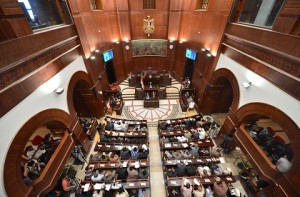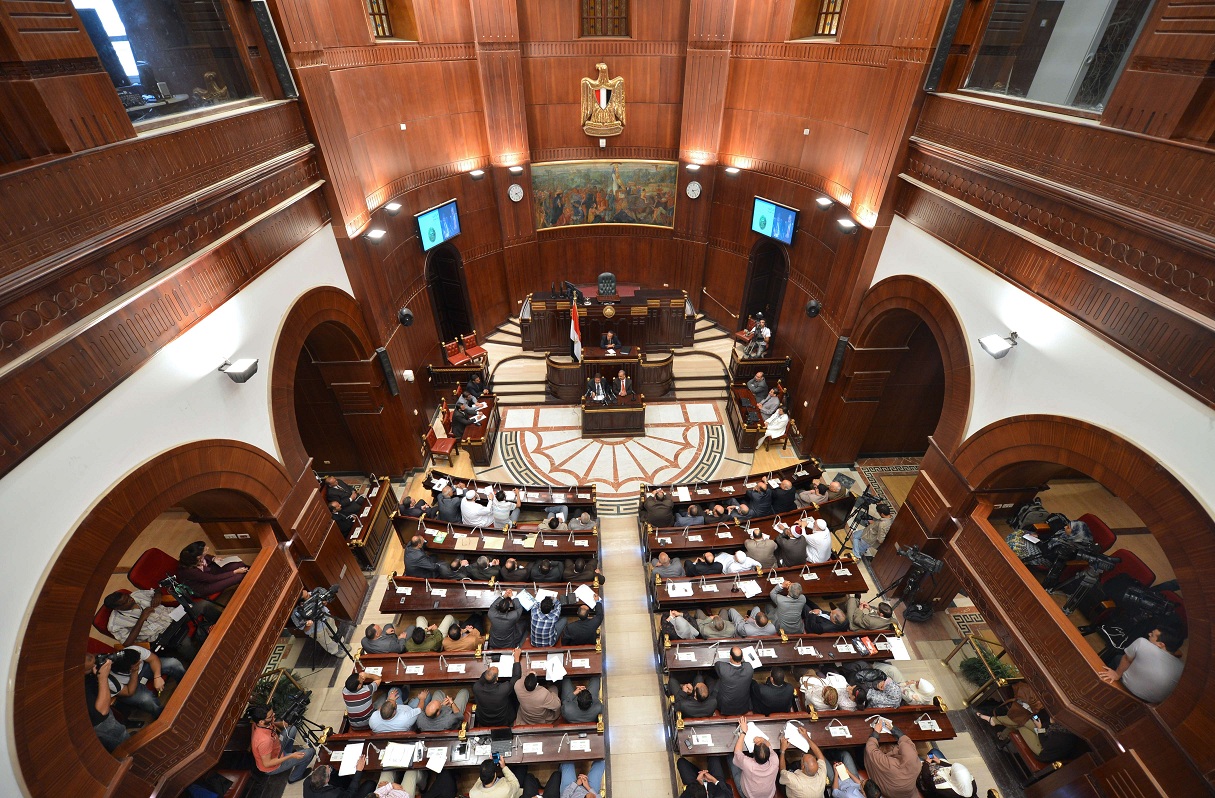
(File Photo)
(AFP Photo)
The Shura Council agreed in principle during its Sunday session to the law proposal governing civil society organisations operating in Egypt. The agreed on proposal was submitted by the council’s Human Development Committee.
Meanwhile the cabinet of ministers is planning to submit another law proposal for the same cause.
Sunday’s session witnessed arguments between several Shura members, some criticising the cabinet for not submitting necessary laws to the council, while others insisting that the council has full authority to legislate without the interference of governmental ministries.
The arguments started when Shura Council Speaker Ahmed Fahmy said the law proposal was introduced by the council’s Human Development Committee, adding that the council is still waiting for another law proposal from the cabinet.
Shura member, Mamdouh Ramzy rejected considering the proposal before receiving the cabinet’s law proposal, explaining that considering the council’s law might cause disagreements with the cabinet ministers. Sobhi Saleh, legal advisor of the Freedom and Justice Party (FJP) and member of the Shura Council, criticised Ramzy’s suggestion affirming that the legislative authority should not work under the cabinet’s supervision. “We are a full legislative authority,” said Saleh.
Omar Al-Sherif, advisor to the justice minister, said the cabinet would submit a law proposal governing civil work within the next days. He added that the proposal would grant more freedom to civil activities that offer community development. Al-Sherif mentioned that the law would be one of the most important laws passed after the 25 January Revolution, asserting that it would meet the demands of civil workers.
Malek Adly, a human rights’ lawyer, said there are three law proposals governing the work of civil society organisations in Egypt: one drafted by the FJP, which the Shura Council agreed on, another one to be submitted by the cabinet, and a proposal drafted by several civil society organisations.
Adly claimed that the government refused to submit the proposal drafted by civil society organisations to the Shura Council, adding that the council’s decision to agree in principle to the FJP proposal is a warning to civil society organisations that the Shura Council could cripple their work.
Addtional reporting by Ibrahim El-Masry

